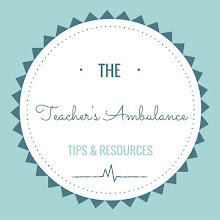I consider studying a new
language as a challenge for my ability to develop myself. Being a teacher I'm
wondering whether I am able to study on my own without tasks and teachers who
can check the homework.
For anybody who has decided to start such a long-term journey, I will give a piece of advice: understand your own motives. When you see the goal ahead, it’s easier to stay focused. If you understand the sense in your actions, nothing can stop you from achieving anything you have planned.
For anybody who has decided to start such a long-term journey, I will give a piece of advice: understand your own motives. When you see the goal ahead, it’s easier to stay focused. If you understand the sense in your actions, nothing can stop you from achieving anything you have planned.
So before
the start of your studying process make a list of your goals and steps of fulfilment. Don’t put them far away. Look at them from time to time in order
to concentrate on your goals.
Although
studying process is very individual, I suggest following the next steps as preparation for
mastering a completely new language:
Understand the general structure of the language.
By this I mean principles of sentence structure. How to build a simple
sentence? How to make a question? Do you need to use word order (like in
English) or to apply system of endings (like in Russian)?
Having answered these questions, you will understand what part of
grammar you need to study first. If the word order has a priority, you should
put an effort to study it. If not, study the system of endings.
Study parts of speech
Traditional approach suggests studying each part of speech separately
and there is nothing bad or wrong about it. But I would recommend you to
combine material from different parts of speech. For example, traditionally we
start studying from a noun and its genders, and then we look at adjectives and
articles separately.
I advise you to combine studying them all together. Take, for instance,
any gender and study all the forms of it in addition with some articles and
adjectives. Don’t try to study all the possible adjectives at once, because
usually they have some subdivision.
Practice what you have studied
It can be different too. First, try traditional exercises for matching,
inserting endings, guessing the meaning, etc. Then you can be more creative:
listen to a song with the words or phrases you know, find some pictures, and
watch a movie. Even if your level is not enough to understand everything, try
to analyse what you see or hear, try to understand the structure of what you
hear.
Speaking practice
It is useless to study the language without speaking. Achievement of communication
skills is the desirable result.







No comments:
Post a Comment